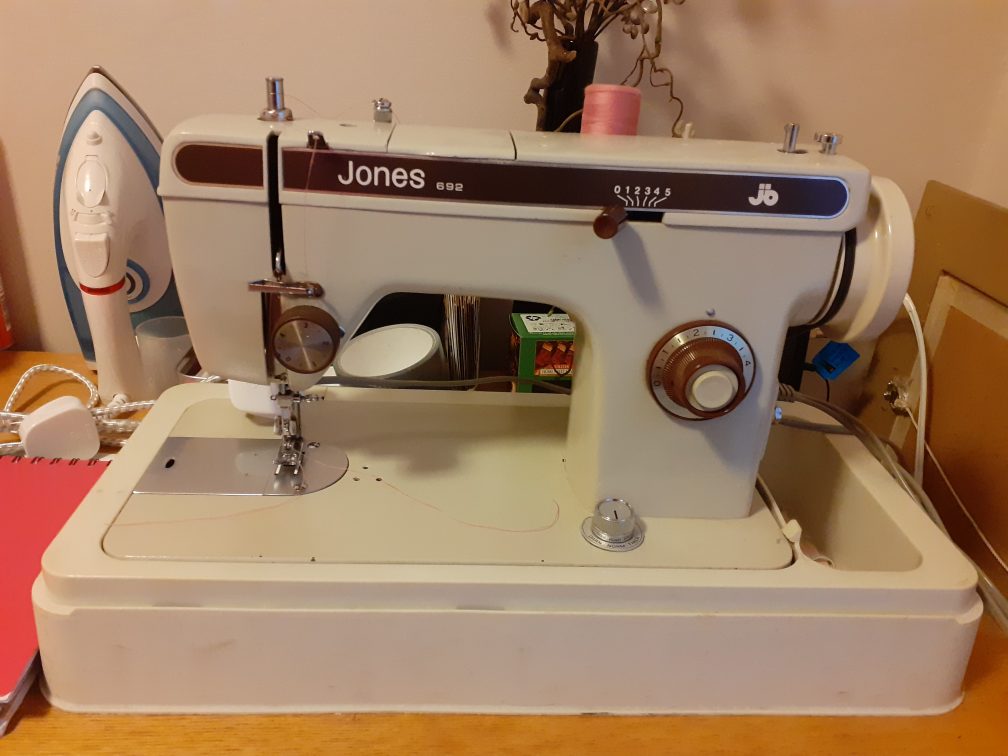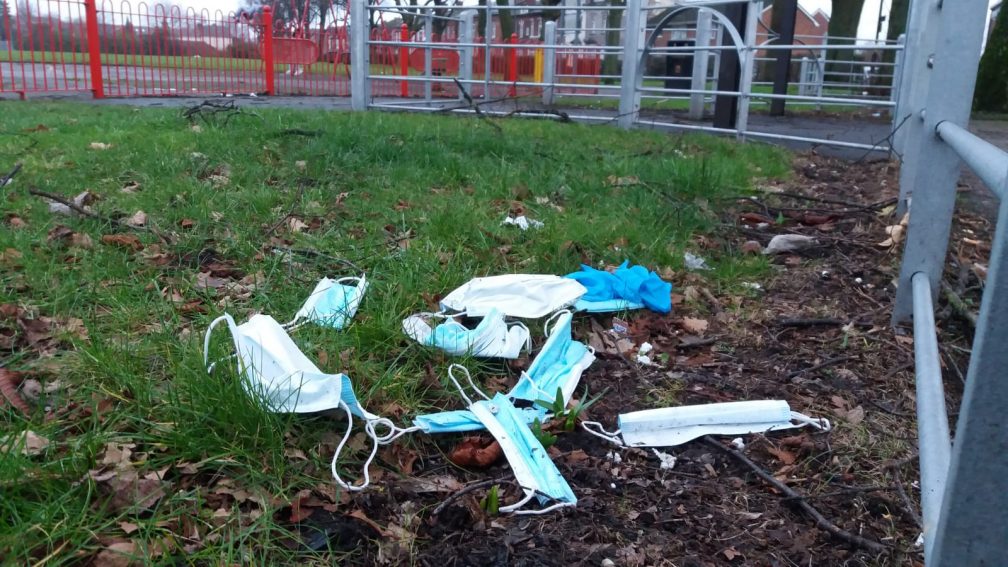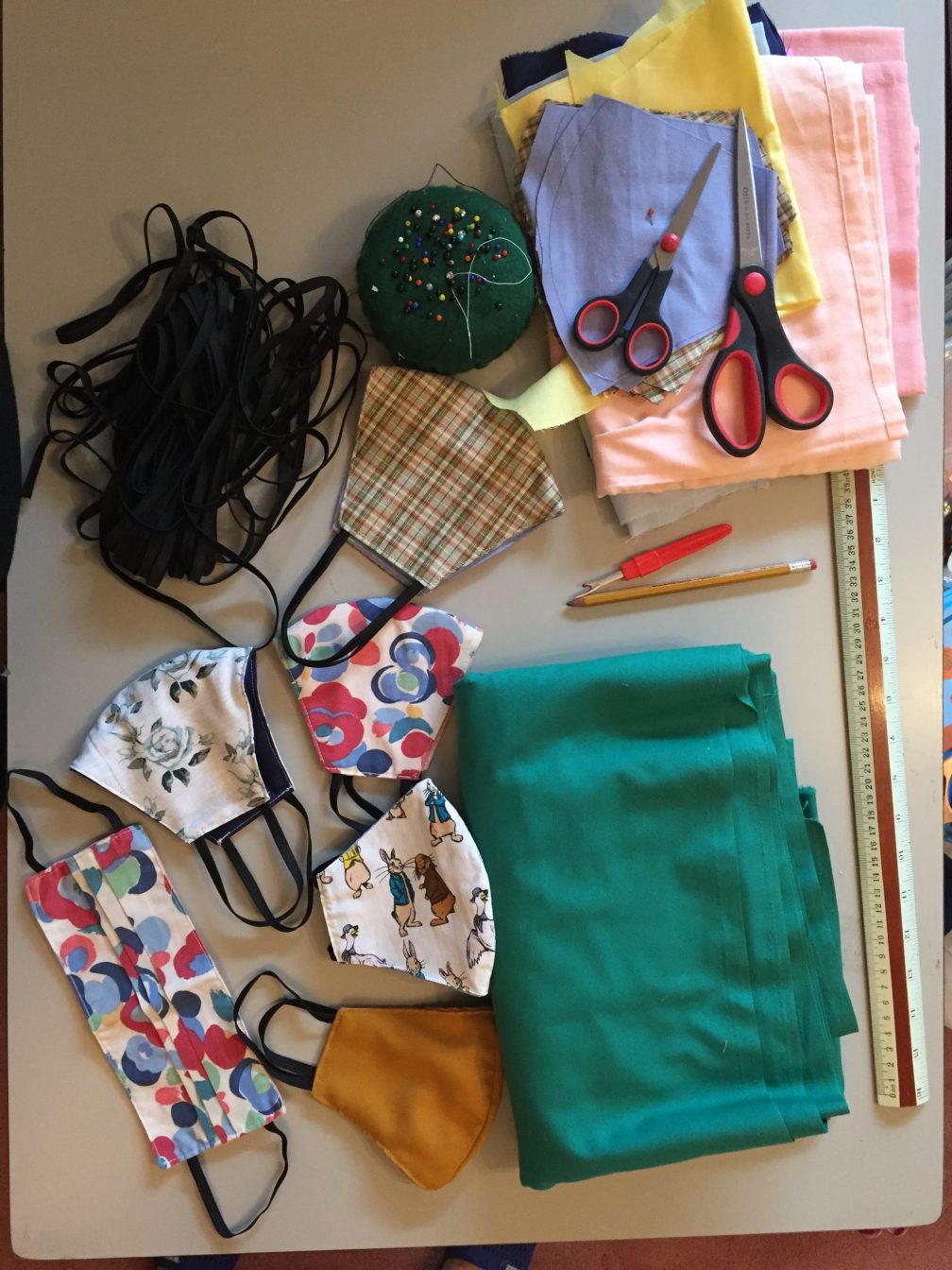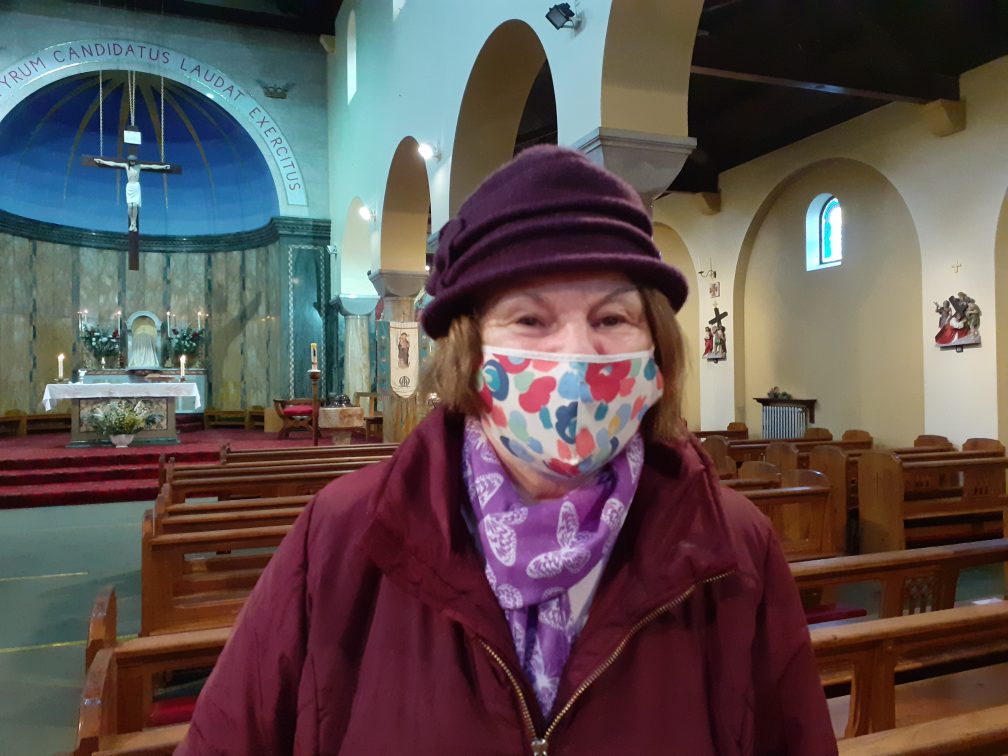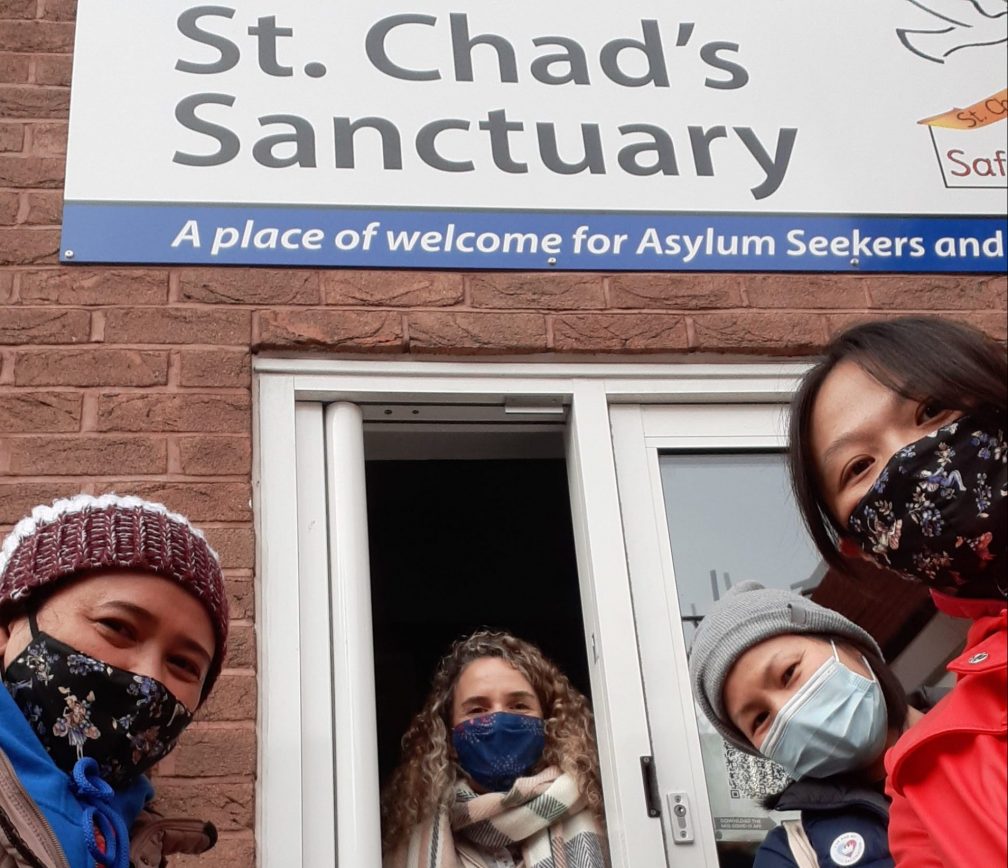
How the project came about?
We first began making face coverings in September 2020 with the asylum seeker women we serve living at Fatima House, a partnership project located in Birmingham offering shelter to female asylum seekers. From here the idea snowballed and in November 2020, we borrowed a sewing machine from a friend and using some donated scrap fabrics and some tools and threads donated from various other friends, and began making reusable face masks at home.
We were inspired to start this face mask project when we realised that the price of the masks would be a challenge for many people who are already in financial difficulty. Not only have face coverings become mandatory during the coronavirus pandemic, but experts have advised that they be changed, washed and replaced frequently.
Most of the people we come across in our ministries across Birmingham are vulnerable people. This includes the elderly, asylum seekers, refugees, and the homeless. Most of them cannot afford to buy what is available on the shelves in the shops at the market price on a regular basis and therefore their health and safety is easily compromised. When those people come to our ministries, aside from receiving relief goods or food parcels, they began asking for face masks too. It was at this point that we decided we needed to put to use our sewing skills and talents and make face masks for those who are in need. Passionate about the safety and well-being of all the people under our care, it is important that we do all we can to protect them from coronavirus transmission.
Protecting the environment
Pope Francis’ Laudato Si’ (Praise be to You) has two related focal points; the first is to support the poor of the world and those who are excluded from reaching their true potential. The second is the call to all human beings to respect, cherish and stop exploiting planet earth, the home for all creation.
Besides supporting our local communities, our face covering project also aims to raise awareness of the importance of protecting the environment by reducing waste and non-biodegradable rubbish that pollutes the environment, contaminates our oceans and rivers and affects wildlife and aquatic life. Since the start of the pandemic we have seen disposable face masks piling up as rubbish around Birmingham. We feel strongly about the build-up of these disposable face masks polluting mother earth!
Aligning with Pope Francis’s encyclical Laudato Si’ on caring for our common home, we Columban Lay Missionaries in Britain are committed to the health and well-being of our planet home. We feel the need to contribute to protecting Our Common Home in response to the love that God that has shown us and shared with us through the people around us. Just as God’s light shines and penetrates to each one of us and into every corner of the earth, we cannot ignore the cry of our brothers and sisters living on the other side of the world suffering with the voiceless cry of the earth.
In St. Mark’s Gospel 4:21, Jesus asks “Is a lamp brought in to be put under a bushel, or under a bed and not on a stand?” What can we do with a lamp that intends to shine and penetrate through space? As the lamp cannot deny itself of its light, we cannot deny that through this light, we see the interdependence and interconnectedness of each other living and sharing the same common earth that is our only home.
A quote from the Irish Bishops published on climate change entitled “The Cry of the Earth” states that “every action taken in favour of a just and more sustainable environment, no matter how small, has an intrinsic value. Action at a global level, as well as every individual action that contributes to integral human development and global solidarity, helps to construct a more sustainable environment and, therefore, a better world.”
With our priority to care for the health and well-being of the people we serve, our intention is to help the poor manage life through this pandemic whilst at the same time prevent extra burden to our environment that is already in crisis.
How do we plan to operate? How can people help us?
Reusable face coverings can be washed like any other item of clothing in a washing machine. We can simply put them inside the pockets of our clothes so that they are washed together with our clothes, or put them inside a laundry net to be washed together with the other small garments. Practically we believe each person needs at least 3 to 4 masks so that they can be alternated while waiting for the used ones to be washed and dried.
We are giving out face masks for free to vulnerable people who cannot afford to buy masks themselves. However, to keep our project going, we need supplies and materials. We gratefully welcome donations, be that money, scrap clean fabric, cotton thread, or elastic. With your kind and generous financial donations, we hope to buy our own sewing machine so that we can return the machine that we borrowed from a very kind and willing friend.
Ministry Updates
To date we have made 275 reusable face coverings! Some of them have been distributed to the elderly in the parishes of English Martyrs in Sparkhill and St. Anne’s Church in Didbeth during the Advent and Christmas season last year. Some masks have been donated to the asylum seekers residing in Fatima House and their friends, to St. Chad’s Sanctuary and others, to homeless people living on the streets of Birmingham.
To find out more information, or to discuss donating money, material or supplies, please email clmuk@columbans.co.uk. Lay Missionaries, Gertrudes Samson and Sophia Ting, who are both actively involved in the project will be in touch to manage your enquiry.


